Graham Reid | | 4 min read
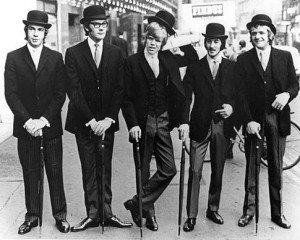
After the Beatles appeared on the Ed Sullivan Show in the US in February 1964 -- when they were seen by approximately 73 million people out of a population of 192 million -- American teenagers had an almost insatiable appetite for British pop music.
And so began the "British Invasion" in which dozens of UK acts toured and had hits in the US, among them the Rolling Stones, the Animals, the tub-thumping Dave Clark Five (who inspired the young Max Weinberg), Peter and Gordon, Chad and Jeremy, the Searchers and . . .
Most improbably, Herman's Hermits who had a number one hit with this . . .
Lead by cute singer Peter Noone who had a twisted front tooth, winning smile and a hairstyle which anticipated Justin Beiber by four decades, Herman's Hermits began their recording career with some very serviceable pop songs produced by Mickie Most (the Goffin-King I'm Into Something Good, the equally catchy Can't You Hear My Heartbeat and their version of the Fifties doo-wop song Silhouettes).
 These were all perfectly fine if lightweight pop hits of the period, but then something very odd happened.
These were all perfectly fine if lightweight pop hits of the period, but then something very odd happened.
They seemed to stick the career into reverse and went back to a much older style of song with Noone singing in a more exaggerated version of his Mancunian accent.
And although these songs didn't damage the UK charts they took them to number one in the US and gave them a serious career over there which sw them make a coule of knock-off pop films as well as regular touring.
Mrs Brown You've Got a Lovely Daughter went to number one in the US (it had been a throwaway in a '63 television play starring Tom Courtney), as did a follow-up three months later, the even worse I'm Henry VII I Am ("second verse, same as the first").
I'm Henry the VIII I Am
That song dated back to the beginning of the century and was an old music hall song . . . so with those two hits and the later Leaning on the Lamp Post, the group was tapping into a tradition that was unfamiliar to young American audiences who seemed to lap up the odd Mancunian/Cockney tropes and the catchy, simplistic tunes.
None of these songs charted in Britain where the band was increasingly dismissed as an empty vessel.
So where does this rather inane and simple pop come from?
George Formby (1904-61)
There is a musical hall tradition in Britain from the 19th century (and earlier) which also fed into UK popular music. The Beatles -- and Ray Davies of the Kinks in the Sixties then Damon Albarn of Blur in the Britpop Nineties -- tapped into it.
For the Beatles it was songs like When I'm 64 and Maxwell's Silver Hammer, both written by Paul McCartney -- born in 1942 -- who grew up with this music as a kid, so . . .
Davies referred to it in the singalong aspects of Dedicated Follower of Fashion ("oh yes he is") and Dead End Street ("hey hey"). And Dandy, which Herman's Hermits covered, again a US hit for them but of no consequence in the UK.
Here's George Formby from 1937
And from 1936 with more risque lyrics (his songs were often banned because they were full of sexual innuendo and double-entendres)
A BRIEF LOOK AT MUSIC HALL
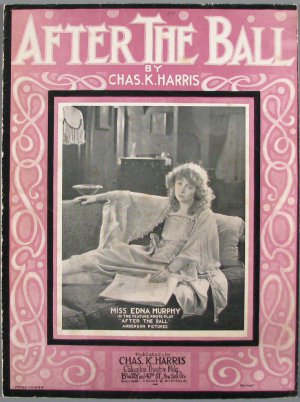 Ironically one of the most popular "music hall" songs wasn't British at all.
Ironically one of the most popular "music hall" songs wasn't British at all.
Let's start with it however because it sold two million copies in just one year.
The year was 1892.
And these weren't record sales because record players had only just been invented at the time and were not common in family homes until a decade or so later.
So we are talking about a time before recorded music.
The massive sales were for copies of sheet music of the song. It went on to sell well in excess of six million copies, the biggest seller of its day out of what was called Tin Pan Alley, an area of New York in the 1880s where (like Denmark St in London) there were many music publishers.
It was written in 1891 by Charles K Harris.
Here he is talking about it and singing it some time in the late 1920s.
So the money here was from publishing not performance (because how could you collect on that?) or recording.
After the Ball (in situ, in a music hall)
Irene Dunn singing.
So there was a strange USA/UK tradition which fell out of popularity in the States but clung on through actual music halls and pub singalongs (Mrs Mills!) in Britain, and drip-fed its way into popular culture and the subconscious of many British pop writers of the Sixties.
But did, or even could, American audiences understand the irony and references in songs like Winchester Cathedral by the New Vaudeville Band?
or the odd catalogue of the Bonzo Dog Doo Dah Band?
So . . .
HERMAN'S HERMITS AGAIN?
The band members behind Noone became increasingly dissatisfied with their musical direction and having session musicians play on their recordings so some kind of ending was inevitable. And in '71 Noone embarked on a solo career.
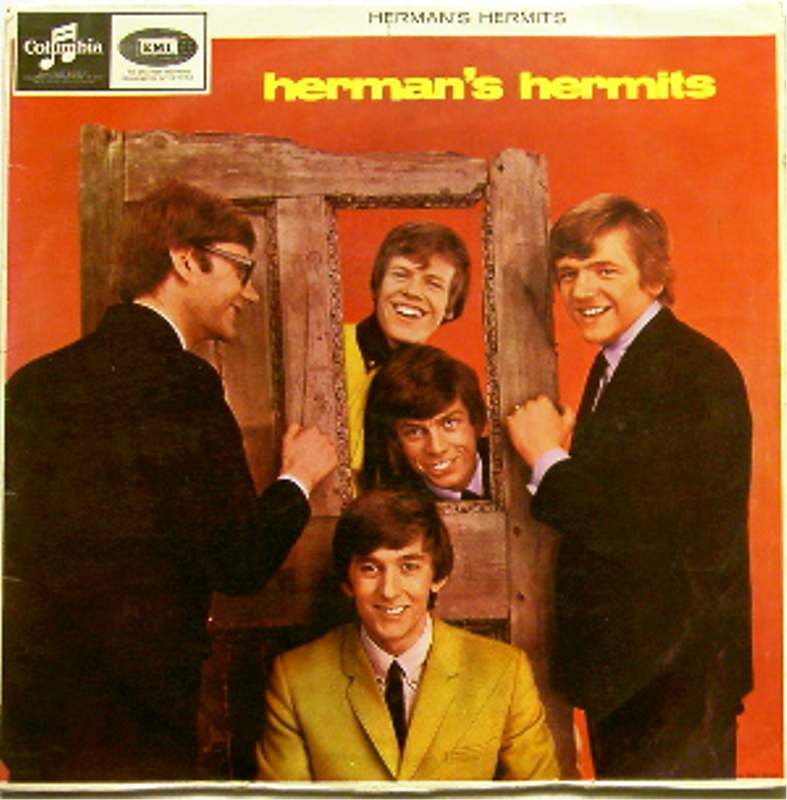 Later in their career however they actually made a more than decent album, it was Blaze of '67.
Later in their career however they actually made a more than decent album, it was Blaze of '67.
But no one in Britain could take them seriously (the album wasn't even released there at the time) and by then their kiddie audience in the US had grown up some . . . and Herman's Hermit's music hall pop hits -- which to be fair wasn't all they did -- were now consigned to a place under the bed along side a beloved teddy bear and other such childish embarrassments.
It would take bands like Madness, Ian Dury and Blur to bring something of that entertainment tradition back into UK pop.
But not even George Harrison's affection for Formby and being a member of the George Formby Society could revive his career through big selling reissues.
As with Herman's Hermits' music hall songs, George Formby and his like remain an entertaining, and curiously British, curiosity.

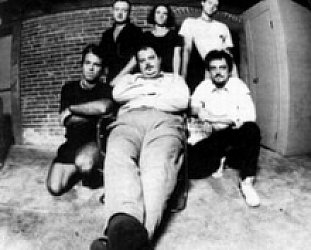
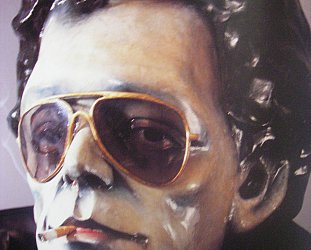
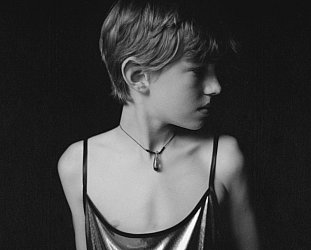
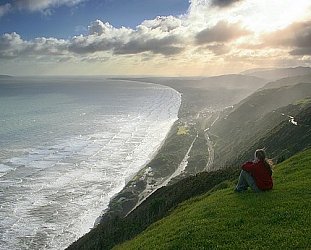
post a comment